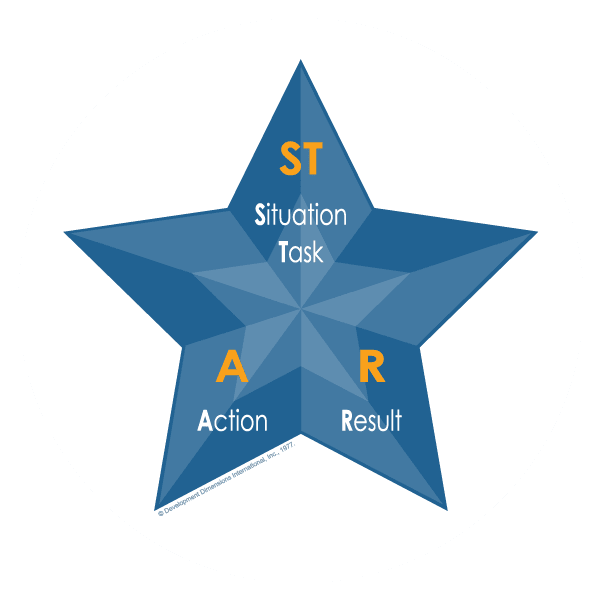Behavioral Interviewing
Better Interviews. Better Hires.
Interviews are a wild card in the hiring process. Nearly every business uses them, but few get them right. In fact, many managers are never trained to conduct interviews. The risk? Bias can get in the way of hiring.
Remember, candidates are interviewing the company, too. There’s nothing worse than finding the right candidate, only to have them turn you down because of a poor interview experience.
Enter Targeted Selection®, DDI’s behavioral interviewing system that ensures fair, accurate candidate evaluation and great candidate experiences. Behavioral interviewing is the world’s most widely used interviewing approach today. And Targeted Selection is the most accurate interviewing system in the world.
BY THE NUMBERS
How Does Behavioral Interviewing Make a Difference?
Data shows behavioral interviewing results in better hiring decisions and a more positive experience overall.
75 ASSESSING SOFT SKILLS
75% of leaders rely on behavioral interviewing to assess soft skills.
Career Builder
64 IMPROVED INTERVIEW EXPERIENCE
64% of candidates are unlikely to accept a job offer after a bad interview experience.
Software Advice
83 BETTER HIRING DECISIONS
83% of leaders lack confidence in making the right hiring decisions.
DDI Global Leadership Forecast 2025

What Is Behavioral Interviewing?
Behavioral interviewing is a structured interviewing approach built on research. The process shows that past behavior predicts future behavior.
In a behavioral interview, candidates provide concrete examples of how they have used specific behaviors and skills on the job. These examples help interviewers understand not only what candidates can do, but how they do it.
Behavioral interviews are also designed to gather consistent criteria across candidates for a job. That way, hiring teams can evaluate and compare candidates fairly. The result? Less bias and greater confidence in hiring teams to select the strongest talent to move your business forward.
Every Leader Needs Behavioral Interviewing in Their Toolkit
An essential task of every leader is hiring the right people. Talent decisions are a long-term investment that can pay off with a highly skilled employee. But the wrong hiring decision can cause a drop in revenue, productivity, morale, and business performance.
That’s why it’s critical that leaders don’t hire for only what a person can do. They need to hire for how they do it. And that’s only the first step. A new hire’s performance and retention depends on how the leader onboards, coaches, delegates, engages, and so much more.
This is why behavioral interviewing skills should be part of every leader’s development. With a DDI Leadership Development Subscription, you can improve how your leaders hire, grow, and retain their teams.

The speed to productivity once somebody’s hired is significantly higher. They have a clear and consistent picture of what their job role is going to be and what competencies are expected starting before the interview.
Cory Kreeck, Vice President of Organizational Development, Beachbody
What Are Behavioral Interview Questions?
You might know behavioral interviewing questions as the ones that start with “tell me about a time when…” But asking questions this way is only the beginning. You also need to structure questions around the competencies for the job.
Behavioral interviewing questions are designed to show how candidates demonstrated a specific behavior or skill in a situation. This format deters candidates from speaking in generalities or talking only about what they would do. Instead, the candidate can explain exactly how they achieved their accomplishments.


Using the STAR Method in Interviewing
Have you heard of the STAR method of interviewing? It's a key part of behavioral interviewing. DDI brought the STAR method to market in the 1970s.
The STAR method helps interviewers capture complete information about how a candidate has performed on the job.
How Do You Master Behavioral Interviews?
At DDI, we train leaders to master both the art and the science of interviewing. The art of interviewing helps you learn how to handle the job interview. For example, managers learn how to build rapport with candidates and ask focused, behavioral-based questions.
The science of interviewing is a process that helps you ensure consistency and reduce bias. For example, managers learn how to score candidates on a consistent scale and integrate the data for a final decision.


Can a Behavioral Interview Evaluate Job Fit?
A common misconception is that you can evaluate job fit in an interview. But too often, “job fit” can be a loose term for bias. It’s easy to make snap judgments about how someone will fit in.
What’s more important is motivational fit. Motivational fit indicates how a candidate’s preferences align with the requirements of the job, location, and company. Motivational fit also shows whether someone wants to do the job versus being able to do the job.
By evaluating motivational fit, you’re more likely to select a candidate who will be satisfied on the job.

Webinar
Transform Your Interviewing
Learn how NewYork-Presbyterian uses behavioral interviewing. Plus, see how they rapidly transformed their approach to hiring, even while the hospital was at its most vulnerable.
Get tips and lessons learned to refresh your interview process.
Have a Question?
Frequently Asked Questions About Behavioral Interviewing
-
How does behavioral interviewing reduce hiring bias?
DDI’s Targeted Selection® behavioral interviewing system cuts through bias by examining what candidates have actually done, not how they make you feel. It looks at real past actions and results instead of gut reactions or personal chemistry. The structured format ties directly to job-specific skills, forcing interviewers to focus on concrete evidence rather than assumptions or impressions.
-
How can behavioral interviewing improve hiring decisions and retention?
Behavioral interviewing helps you choose candidates based on what they’ve actually done, not what you think they might do. You'll see their real skills in action through past examples, leading to better job matches and fewer costly hiring mistakes. When people land in roles that fit their proven abilities, they perform better and stick around longer—boosting both the team’s success and your retention rates.
-
Why is training important for effective behavioral interviewing?
Training equips interviewers with the skills to ask the right questions, listen for key details, and evaluate candidates fairly. Without it, interviews can become inconsistent, complacent, and biased. DDI’s training ensures interviewers use the STAR method and Targeted Selection® approach effectively—leading to more accurate, confident, and equitable hiring decisions.
-
How does behavioral interviewing enhance the candidate experience?
Behavioral interviewing improves the candidate experience by offering a fair, structured process focused on real past experiences. It reduces stress by making expectations clear and allows candidates to showcase their true skills. As a result, candidates feel respected, better understand what the organization values, and view the company more positively.